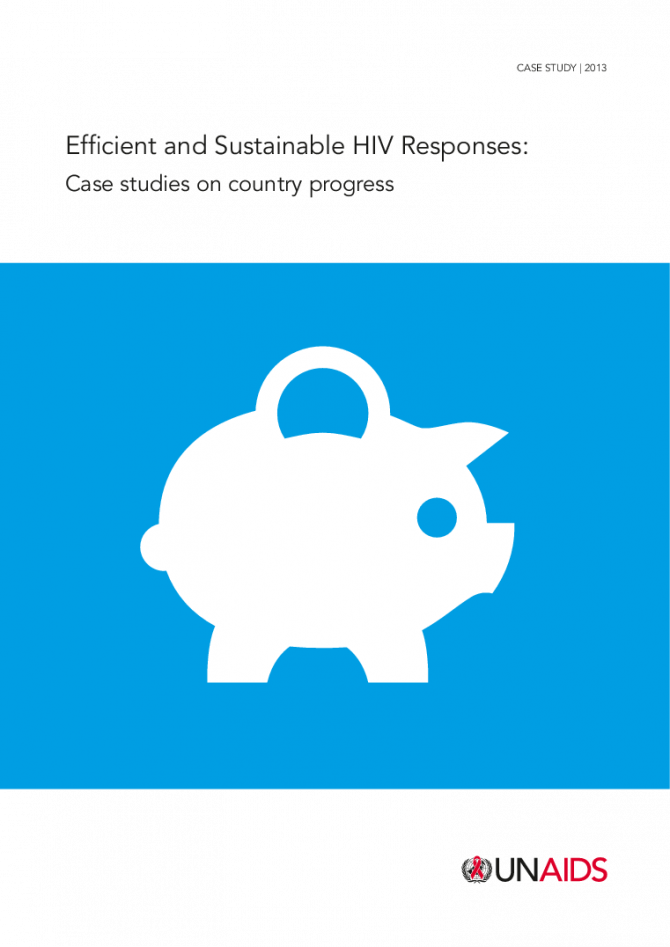Documents
Efficient and Sustainable HIV Responses: Case studies on country progress
15 January 2013
As the world economic landscape changes, so too does the HIV funding landscape. The limited resources available require more emphasis on value for money. This case study report consists of eight case studies. It highlights countries’ progress in making their HIV response more efficient or increasing domestic HIV funding, contributing to sustainability, increased scale-up and country ownership. Cambodia and Myanmar have re-allocated resources towards high-impact interventions. South Africa and Swaziland have saved millions by improving their antiretroviral drug tenders. Kenya, Namibia, Malawi and Kazakhstan have taken active steps for a future with fewer external funds. Each country has evolved strategies that other countries may apply to their particular context. The examples given here aim to catalyse country-driven action to make efficiency and sustainably funded HIV services the reality in the HIV response.

